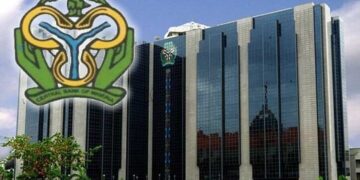KPMG, a global audit, tax, and advisory services company, has stated that the recent decision by the Central Bank of Nigeria (CBN) to raise the Monetary Policy Rate (MPR) to 24.75 per cent, could help attract more portfolio investments. However, the firm, in its ‘flashnotes’ tagged: “CBN’s Monetary Tightening: The Trade-off Dilemma”, stated that the decision although a step in the right direction, was not enough to tackle the country’s inflation. The Monetary Policy Committee (MPC) of the CBN raised the bank’s MPR to 24.75 per cent in March 2024, bringing it to its two-decade highest and representing a 200 basis points (bps) increase from the previous 22.75 per cent set in February 2024. Also, the CBN narrowed the asymmetric corridor to +100/300bps around the MPR in its March meeting after initially widening it to +100/-700bps around the MPR. Furthermore, the committee left both the Liquidity Ratio and the Cash Reserve Ratio (CRR) unchanged at 30 per cent and 45 per cent, respectively. For merchant banks, however, the CRR was raised from 10 per cent to 14 per cent. Despite these upward adjustments, inflation remained elevated reaching 31.7 per cent in February 2024.
This necessitated the more aggressive response of the apex bank to address inflationary pressures. These moves, KPMG said, are not only consistent with market expectations but also reaffirm the independence of the CBN in its conduct of monetary policy but noted that the CBN needs to guard against the negative impact of the decision. Statistically, KPMG noted that inflation is set to lose steam after mid-year, largely because of the onset of the base effect, except economic policies that significantly pressure prices are implemented by the federal government. “Attributing a decrease in inflation solely to the tightening of liquidity once the base effect kicks in after mid-year might be inaccurate,” the consulting firm added. Addressing Nigeria’s supply-side bottlenecks, it posited, is crucial for taming its cost-push inflation, adding that unless the challenges are sustainably addressed, inflation may yield little to monetary tightening.













































































